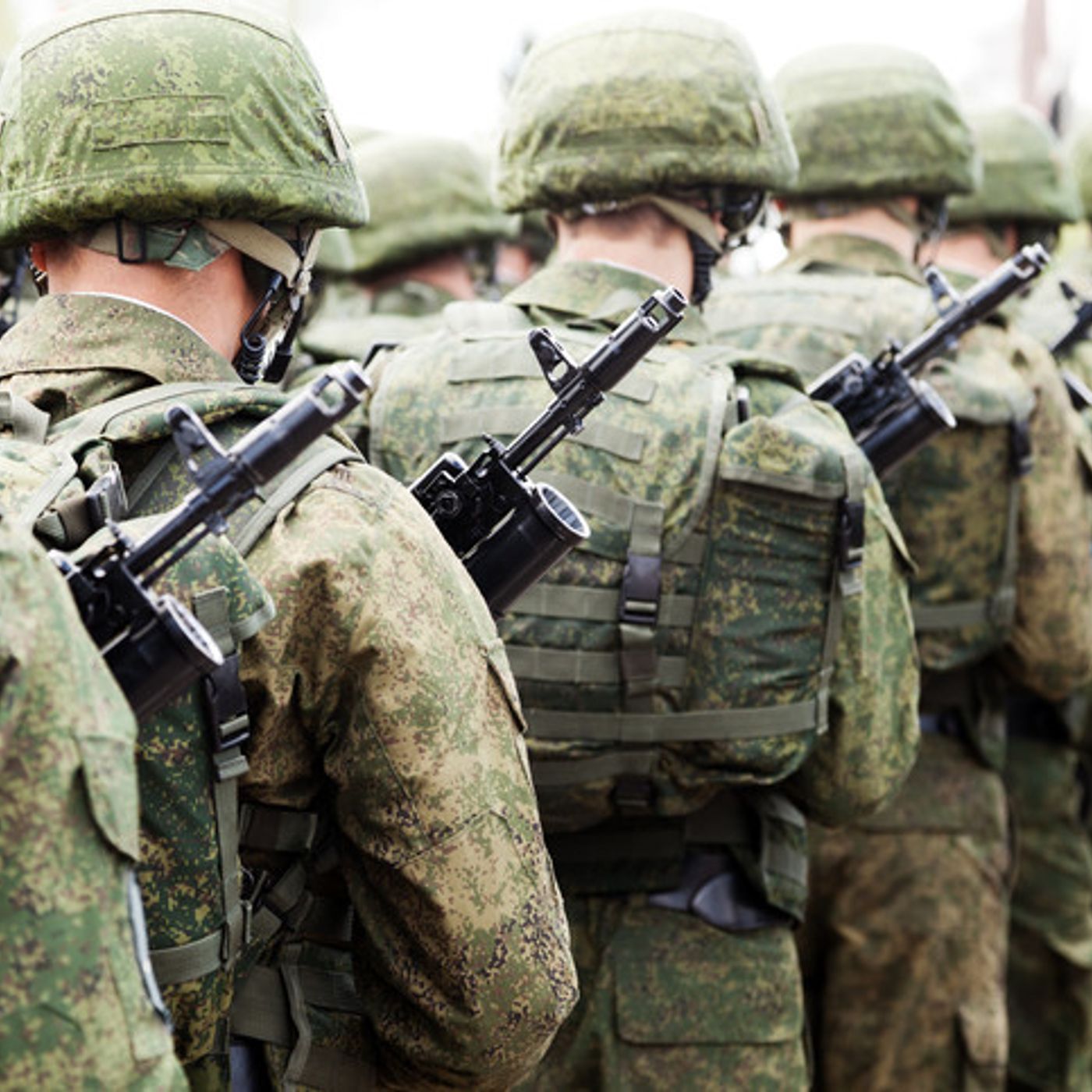
🎤 PODCAST • Veterans Issues ~ Coping w issues returning vets face ~ interview w counselor Jay White

www.drkenner.com Answers Your Questions
Deep Dive
- Readjustment issues faced by veterans include reconnecting with family and life after war.
- The experience of returning home can be emotionally complex, with a mix of joy and difficulty.
- Veterans may face challenges in putting their war experiences behind them.
Shownotes Transcript
The Selfish Path to Romance. Download Chapter 1 for free at drkenner.com and at amazon.com. We see it on the news. We see the vets coming home and embracing their family members. And it looks so loving, so wonderful. And yet there's another side to this. And with me today to discuss this is Jay White. Jay White has been to Baghdad.
And he works with the Global War on Terrorism. He's a readjustment counselor at the Hartford Veterans Center. And he will tell us a little bit about what are some of the issues that the vets face when they come home and the outreach. What are some coping skills that they can use? What resources are available to them? Welcome to the show, Jay.
Hi, thank you. Jay, tell a little bit about where you served and what you did, and then we'll go right into what are the issues that you faced when you came home, and what are the issues you currently face? Because as I understand it, you're going back again.
Okay. I'm with and was with the 883rd Medical Company out of Boston Army Reserve, and we served in Iraq. In Baghdad, I was embedded with the 3rd Infantry Division, so that's what I did then. And, you know, like we mentioned, coming home, you do deal with a lot of readjustment issues, trying to get back in touch with your family, your life.
and put all the stuff behind you, and in fact, you can't really put it behind you because it's always still there. So there's a big issue with that. And you're right, the fact that many do need to return back is a common problem. Because you live with the uncertainty all over again. And yeah, how many times can you...
keep going back, you know, so. Right. I think you mentioned when I went to a conference where I heard you, how will we welcome them home? You said something on the order of how many times can you press your lock?
That's true. I feel that way personally. I'm sure others may feel that way, but me personally, I do wonder how many times can you pressure your luck and drag your family through it with you. It's not just you going, unfortunately. It affects everyone around you. When you came back, who was the first family member that you saw? That I saw? Yeah.
Uh, one of my younger sisters. Yeah, was this, were you getting off of a plane or? A bus. Off of a bus in Boston? Yeah. And then what was that like, just to reconnect again with this world? Actually, our bus was a little early, so, um.
The people had been told we were getting there a little later, so when we actually got off the bus, there was nobody. Oh, that's painful. Yeah, about 15 minutes later, my sister, it was actually her 21st birthday that day, so that was nice for both of us. And my cousin, Vicki, they came together, and they came running down the street. They saw me. I was, like, on the corner by that point. Yeah. I just heard two people screaming and looked, and they...
pretty much tackled me, you know. That's wonderful. I can visualize that. Tell me, that's like the welcoming home. That's the high point of, oh my gosh, it's really true, I'm home.
And what is it like, though? What are some of the hidden issues that get buried for a lot of the vets, including yourself? The trouble signs that you want to look out for, things that you don't want to just bury and pretend they don't exist. You need to get help for them. Is this looking at it through the eyes of the veteran? From the eyes of the veteran. Let's see.
I think you need to remember how you were before you left and kind of compare the two. Now, you need to realize, too, that you have changed and all that and give that some room. But if you realize that, you know, you do have a shorter fuse than you used to or you're not motivated to do the things you used to do, you know, take note of that stuff. Not necessarily be concerned because remember you did change, but take note of it. Are you not sleeping now? Are you
Are you afraid to go to the grocery store because there's too many people around? Yeah, tell me about that one. Hey, I've got to interrupt this because we've got to pay some bills. 30 seconds, that's it. A very quick ad and then Alan will be back. Romance. Oh, I wish guys knew more about what we want from a relationship. Boy, I wish I knew more about what I want. Where's that ad I saw?
Ah, here it is. The Selfish Path to Romance. A serious romance guidebook. Download Chapter 1 for free at SelfishRomance.com and buy it at Amazon.com. Hmm. The Selfish Path to Romance. That is interesting. Are you afraid to go to the grocery store because there's too many people around? Yeah, tell me about that one. Um...
I think the biggest thing for so many people who have to go into urban areas is
So you're still in survival mode. Right.
Right. Hyperventilating, it gets worse from there, you know, physically. So you can have panic attacks, the hyperventilating. You can have just that hyperarousal being on alert. Your life feels like it's on the line all the time. And that doesn't just stop when you go to sleep. You're saying people have sleep difficulties and a lot of anger problems, too.
Yeah, and a lot of people just have trouble getting to sleep, and it goes beyond the time change, getting used to the time change, because it carries on for months a lot of times. Can't get to sleep, wake up early, wake up every hour. And so it makes sense that there are going to be more divorces or more marital problems or job problems or people turning to drugs and alcohol if they're in that much internal pain.
or maybe even some self-harm there. Yeah, unfortunately, all of that does happen, and thankfully it doesn't seem to be overrunning the population of people coming back, but it definitely is out there. I think one of the first things people need to take note of is isolating. Are they spending too much time by themselves? Now, it's important to keep time for yourself too, but are they coming home from work and just kind of like...
staying on the computer and not doing anything else all day, or they're just going out in the garage and working on their truck and not doing anything else with anybody ever. You're mentioning some of the signs of post-traumatic stress disorder, just isolating, numbing, avoiding anything that could bring back a memory, maybe having some nightmares or flashbacks or things that cue you back into the trauma, if you saw dead bodies or if a friend died or if you had to kill someone.
and also that startle response. So a lot of these are signs of what's called post-traumatic stress disorder. How do you help people cope with this multitude of problems? Well, first of all, you can only help the people who are willing to get the help. So unfortunately, we need everybody who needs the help to get the help. But once they do start, I think just being able to talk about it, get it off their chest, let's share it with somebody else is the first step.
I think it's a big step. Rather than holding in your ghosts, you know, let them go. Talk about it. So the power of opening up. And you encourage people, you encourage vets to get the help. That's what you do with outreach, that you're a readjustment counselor. This is Jay White I'm speaking to from the Hartford Veterans Center. And you're a readjustment counselor. So you reach out to people and say, don't worry about the stigma. And I know that was a theme throughout the conference I went to, how will we welcome them home.
that they're so afraid, they're so tough in war that they're afraid to come home and have the courage to get the help that they obviously need. Right. I think maybe to keep it as simple as possible is every veteran should say to themselves, am I happy right now? Do I like what's going on? If not, what can they do about it? And if that requires going and talking to somebody, then go talk to somebody. If it requires...
doing something else, then they need to do that. If they need the help, then they should certainly get it. Okay, and you would want to reach out to them, and they could call the Hartford Veterans Center if they're in that area or any Veterans Center and ask for a readjustment counselor like yourself to help them through the difficulties. Thank you so much for joining us today, Jay. Okay, thank you for having me.
And you know, it's not only vets that need to ask themselves the question, am I happy right now? What can I do about it? And reaching out to talk with someone rather than, as he said, holding in your ghost and
and refusing to talk about it. As Jay said, he can only help the people who are willing to get the help. So if you're holding in some ghosts today, do yourself a really, really, really big favor and get the help you need. Go to a therapist if you want, a counselor or a therapist, and
Even if you're not a vet, if you're a vet, certainly do that. Give that gift to yourself. But even if you're not and you've been struggling with some problems, get the help you need. For more Dr. Kenner podcasts, go to drkenner.com and please listen to this ad. Here's an excerpt from The Selfish Path to Romance, the Serious Romance Guidebook by clinical psychologist Dr. Ellen Kenner and Dr. Edwin Locke.
Thank you.
Some reasonable resistance is natural. When partners are rational, initial opposition to certain points may indicate they are thinking about the topic and may not yet have processed it from each other's perspective. You can download Chapter 1 for free by going to drkenner.com